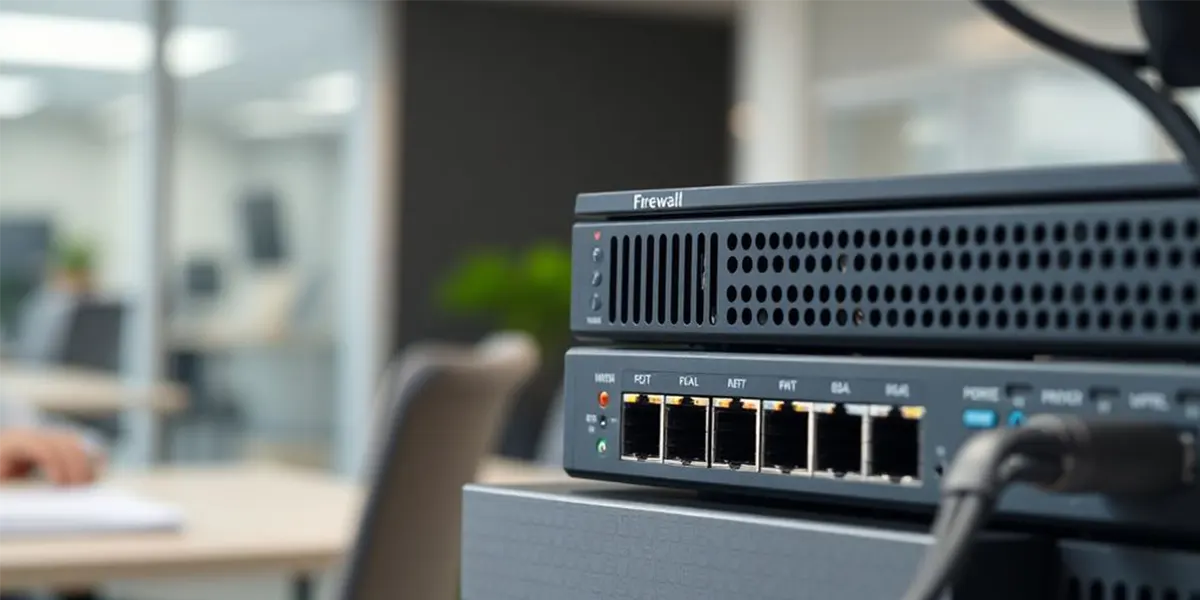Proxy vs firewall are two critical concepts in network security that serve distinct purposes. To effectively compare firewall vs proxy, it is essential to first understand several key concepts, such as how traffic is managed, the level of security provided, and the functionalities of each tool. Proxies act as intermediaries, facilitating requests between users and the internet while offering anonymity and content filtering. On the other hand, firewalls act as barriers, monitoring incoming and outgoing traffic based on predetermined security rules. By grasping these fundamentals, we can better assess the capabilities of each solution and make informed choices based on our specific security needs.
Introduction to Proxy vs Firewall
Alright, so let’s start with proxy servers. Imagine them as middlemen in your internet world. These guys sit between your computer and the big, wide internet. When you want to visit a website, your request goes through the proxy server first. It then forwards your request to the internet and brings back the results. This helps in keeping your IP address hidden, giving you some level of anonymity online.
Now, firewalls are like the bouncers of your network. They stand guard at the entrance and exit points of your network, deciding what can come in and go out. Firewalls block unwanted or harmful traffic, keeping your network safe from the bad guys. They can be hardware devices or software programs, each with its own set of rules to follow.
Key Differences Between Proxies and Firewalls [firewall vs proxy]
Firewalls and proxies both play important roles in network security, but they tackle different problems. Firewalls keep the network safe from threats, while proxies help manage and optimize your internet usage. Understanding these differences can help you decide which one to use for your specific needs.
Layer of Operation in the OSI Model
Firewalls and proxies, they do their thing at different layers of the OSI model. Firewalls hang out at the network and transport layers, which are layers 3 and 4. They check out stuff like IP addresses and port numbers. Proxies, though, they work at the application layer, which is layer 7. They handle the data and requests from apps, kinda like the middleman.
Handling of Network Traffic
Firewalls are like the bouncers of a network. They block unwanted guests and let the good ones in. They check all the traffic coming in and out of a network. Proxies, on the other hand, they manage requests between clients and servers. They can do stuff like caching content, filtering web pages, and even hiding your IP address.
Security vs. Performance Focus
When it comes to security and performance, firewalls and proxies have different priorities. Firewalls are all about keeping the bad guys out. They enforce strict rules to protect the network from unauthorized access and attacks. Proxies, meanwhile, focus on improving performance and privacy. They can speed up web browsing by caching content and provide anonymity by hiding your IP address.
“in Proxy vs Firewall, both play important roles in network security, but they tackle different problems. Firewalls keep the network safe from threats, while proxies help manage and optimize your internet usage. Understanding these differences can help you decide which one to use for your specific needs.”
![Firewall vs proxy [Difference between firewall and proxy] 1 digital network setup depicting proxies and internet security](https://netwisetech.ae/wp-content/uploads/Key-Differences-Between-Proxies-and-Firewalls.webp)
![Firewall vs proxy [Difference between firewall and proxy] 1 digital network setup depicting proxies and internet security](https://netwisetech.ae/wp-content/uploads/Key-Differences-Between-Proxies-and-Firewalls.webp)
Comparative Analysis Proxy vs Firewall
let’s talk about what makes proxy servers and firewalls different. First off, the main purpose of a proxy server is to act as a middleman between your computer and the internet, while a firewall is all about keeping unwanted traffic out of your network. Proxies focus on filtering content, whereas firewalls are more about filtering packets.
“In a nutshell, proxies and firewalls are like the dynamic duo of network security. They each have their own job, but together, they can really beef up your defenses.”
When to Use a Firewall
Protecting Against Cyber Threats
Firewalls are like the bouncers of your network. They stand at the door and decide what gets in and what stays out. If you’re worried about hackers or malware, a firewall is your first line of defense. They block unwanted traffic and keep your data safe from prying eyes.
- Stops unauthorized access from hackers
- Blocks malicious software trying to enter your network
- Monitors traffic for any suspicious activity
- Implementing Network Segmentatio
Implementing Network Segmentation
Think of network segmentation like having different rooms in a house. You wouldn’t want every room to be accessible to anyone, right? Firewalls help you create these separate spaces in your network, limiting who can go where. This way, even if someone sneaks in, they can’t roam freely.
- Divides network into sections to control access
- Limits the spread of any potential attacks
- Helps manage traffic efficiently
Enforcing Security Policies
Firewalls aren’t just about keeping the bad guys out; they also help you keep things in check inside. They enforce security rules, making sure everyone follows the same playbook. This is crucial for businesses that need to comply with regulations or just want to keep things running smoothly.
- Ensures compliance with security standards
- Controls what data can be shared or accessed
- Helps maintain a secure and organized network
“Firewalls are a must-have for anyone serious about network security. They provide a solid barrier against threats, help organize network traffic, and ensure that security policies are followed to the letter. Without them, your network is like a house with the doors wide open.”
Where can we obtain firewalls that can also be used as proxies?
![Firewall vs proxy [Difference between firewall and proxy] 2 close-up of a firewall device with glowing lights](https://netwisetech.ae/wp-content/uploads/When-to-Use-a-Firewall.webp)
![Firewall vs proxy [Difference between firewall and proxy] 2 close-up of a firewall device with glowing lights](https://netwisetech.ae/wp-content/uploads/When-to-Use-a-Firewall.webp)
Integrating Proxies and Firewalls in a Network
Complementary Roles and Functions
So, proxies and firewalls, they’re like the dynamic duo of network security. Firewalls are the bouncers, keeping out the unwanted guests by filtering network traffic. Proxies, on the other hand, are like the middlemen. They manage and optimize access to the internet while adding a layer of privacy. Together, they create a solid security setup.
Challenges in Integration
But hey, it’s not all smooth sailing. Integrating these two can be a bit tricky. You’ve got to deal with compatibility issues and the complexity of configurations. Plus, there’s the risk of slowing down network performance if things aren’t set up just right.
Best Practices for Deployment
- Plan Ahead: Know what you need from both proxies and firewalls before setting them up.
- Regular Updates: Keep everything up-to-date to avoid vulnerabilities.
- Monitor Performance: Always keep an eye on how your network is performing to catch any issues early.
“Combining proxies and firewalls can give you a more secure network, but it’s all about balance. Make sure your setup is tailored to your specific needs, and you’ll be good to go.”
Conclusion
In summary, both proxy servers and firewalls are important for keeping networks safe and managing internet access, but they serve different purposes. Firewalls act like security guards, blocking unwanted visitors and harmful traffic from entering a network. On the other hand, proxy servers work as middlemen, helping users connect to the internet while keeping their identities private and allowing them to access content that might be restricted in their area. Many people and organizations use both tools together to create a strong defense against online threats. Understanding how each one works can help you choose the right protection for your needs, ensuring that your online activities and personal information stay safe.
What assistance can Netwise provide for understanding Firewall vs proxy?
At Netwise Technology LLC, we are committed to helping you navigate the complexities of information technology, particularly in the realm of networking and network equipment. Our team [Cyber Security Solution Distributor in Dubai, UAE] of specialists is ready to provide expert advice tailored to your specific needs, whether you are looking to enhance your network security or improve overall performance.
We understand that concepts like proxy vs firewall can be confusing, and we are here to clarify these distinctions and guide you in making informed decisions. Contact us today for a consultation and let our expertise support your technology goals!





